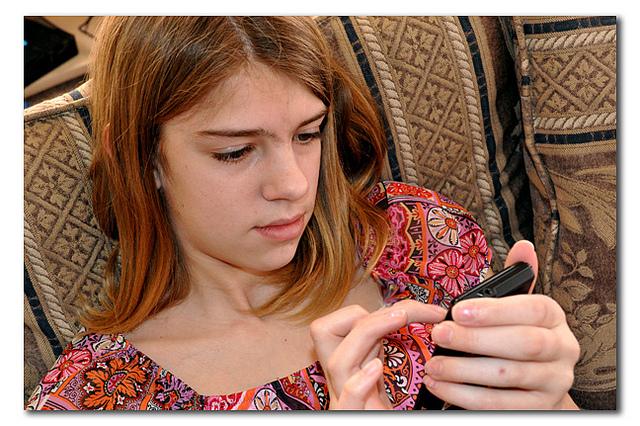Cell phone addiction is more than a concern
Adolescents are accessing their smartphones more than ever, and that has created problems
Cell phone addiction has reached a disturbing level, as students are using their phones more than ever and refusing to part from their devices when necessary.
May 3, 2015
In 2013, 19 percent of all adolescents in the United States lived in poverty. Just two years later, a new study conducted by the Pew Research Center concluded that 73 percent of all adolescents own or have daily access to a smartphone and 91 percent have at least occasional access to a phone with internet capabilities.
Smartphones are rarely a cheap investment. A single-line, two gigabyte plan from Verizon costs approximately $75 per month and the same plan costs approximately $65 per month from AT&T. T-Mobile offers similar plans ranging from 1GB of data each month to 3GB of data costing $50 and $60 respectively.
Yet with an overlapping two percent, there are teenagers in the United States who choose to spend their parents’ money on smartphones over other necessities.
Smartphones are changing the way we think and the way we act. A study released in 2013 by Jumio reveals that people are increasingly unable to part from their smartphones. In the study of 1102 people, 55 percent of participants surveyed admitted to using their smartphone while driving, 35 percent admitted to using their phone in a movie theater, 33 percent while on a date, 12 percent in the shower and 9 percent of people surveyed admitted to checking their smartphone during sex. Nearly 72 percent of all participates said they are generally within five feet of their smartphone.
Cell phone addiction and separation anxiety are fast growing trends. Women are more likely to feel separation anxiety than men are, with 70 percent of women experiencing such feelings and 61 percent of men.
A cell phone addiction can cause a teenager to feel anxiety without their phone near them and to check their phone constantly with an added compulsion to respond to updates immediately. Cell phone addictions are also linked to failing grades and decreased social skills from lack of face-to-face communication.
There is even a phobia of not being connected to one’s cell phone: nomophobia.
In addition to nomophobia, phantom cell phone vibration syndrome is becoming increasingly popular. Phantom cell phone vibration syndrome is a key indicator for a technology addiction. The syndrome causes an individual to feel a vibration as if their phone went off when it really didn’t. Users will feel a vibration and check their phone to realize they have no new notifications. Phantom cell phone vibration syndrome is thought to stem from the separation anxiety many experience with their smart phones.
“Humans are social creatures,” psychology professor Eric Haas said. “We very much need to have that connection to each other. I think with technology, it has both increased our relationships but at the same time has decreased the quality of those friends.”


